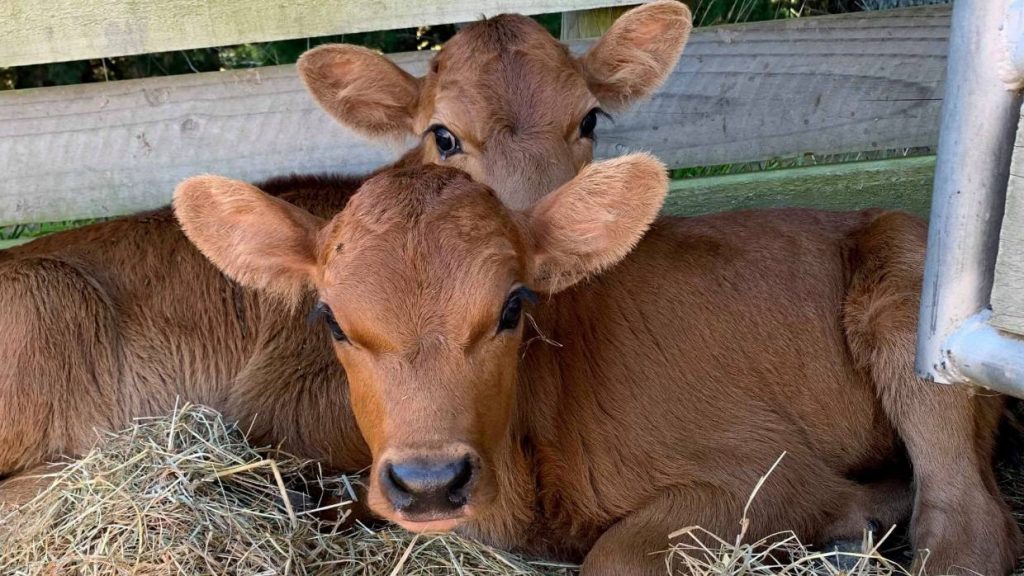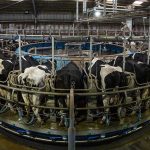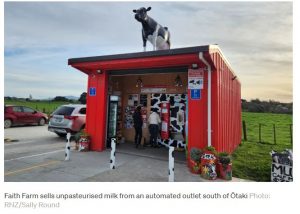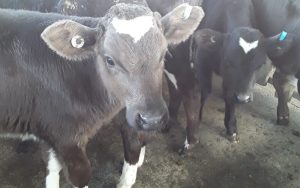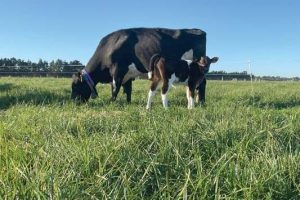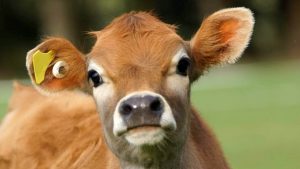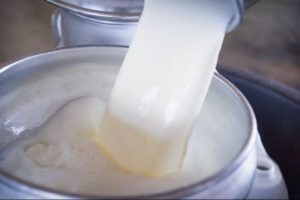
They are creating a new class of beef from dairy-cross cattle, which can be raised and sent for processing before one year of age.
The issue of four-day-old bobby calves being slaughtered is one of New Zealand agriculture’s perennial problems, attracting the ire of animal welfare groups.
Last year 1.78 million bobby calves were killed because they were “surplus to requirements” – not needed as milking replacements by the dairy industry.
However Masters researchers Sam Pike and Josh Hunt have raised herefords crossed with friesian-jersey steer calves to eight, 10 and 12 months of age and have succeeded in developing tender and valuable prime beef called New Generation Beef.
Leading the project is Dr Nicola Schreurs of Massey University’s School of Agriculture and Environment.
“The idea that’s novel about new generation beef is that they’re only going up to one year of age. If you were to raise all the surplus calves supplied by the dairy industry on a pasture diet you would start to run out of space if you held them for more than one year,” Schreurs said.
She said a lot of farmers had expressed interest in raising the animals but more work had to be done with processors, and from there to developing products which could be taken to markets overseas.
“People like the concept but now we have to nut out where the animals are reared and finished. Are some of them staying on a dairy farm, are some of them going to finishers after they’re weaned, who’s raising them for the first three months to get them to 100 kilograms which is an ideal weaning weight.”
One of the hurdles to overcome was the fact processors were geared up for cattle which weighed 600kg, whereas the one-year-old animals were about 300kg. Therefore less meat was coming off them, even though there was about the same effort involved in processing them.
Another area of Massey research is to find beef sires to put over dairy cows, which are better suited to producing a calf without birthing issues while the calf still has value for meat production.
Growing up on a sheep and beef farm near Bulls, but surrounded by dairy farms, Pike developed an interest in both cattle and sheep sectors.
“In 2017, we were at the end of our bachelor degrees at Massey and looking for a masters topic and this came up. It was ideal for both of us, in terms of my strong interest in meat science and Josh’s interest in farm economics.”
Supported by a Meat Industry Association’s (MIA) scholarship programme, the pair wanted to find acceptable solutions to the problem of surplus calves produced by the dairy industry
As well as reducing the numbers of bobby calves killed, their research aims to minimise environmental impacts by cutting down on animals being on a farm for under a year, avoiding the need for overwintering.
One group of the 80 crosses they raised were sent for processing at eight months, the second at 10 months and the third at 12 months. There was also a 24-month steer group that was processed this year and those results are still being analysed.
The results indicated good growth weights and eating characteristics. Weights of 250kg were achieved at eight months, 300kg at 10 months, 350kg at 12 months, and 580kg at 24 months.
The MIA programme provides six $5000 undergraduate scholarships and four $10,000 post graduate scholarships for each year of study. It is aimed at students studying food sciences, engineering, environmental science, international marketing, process design and innovation.
“The scholarship was a huge help, not only in terms of contributing to course costs and living expenses, but it also helped me to undertake additional professional development I would not have been able to do otherwise, including attending some industry conferences and farming field days,” Pike said.
